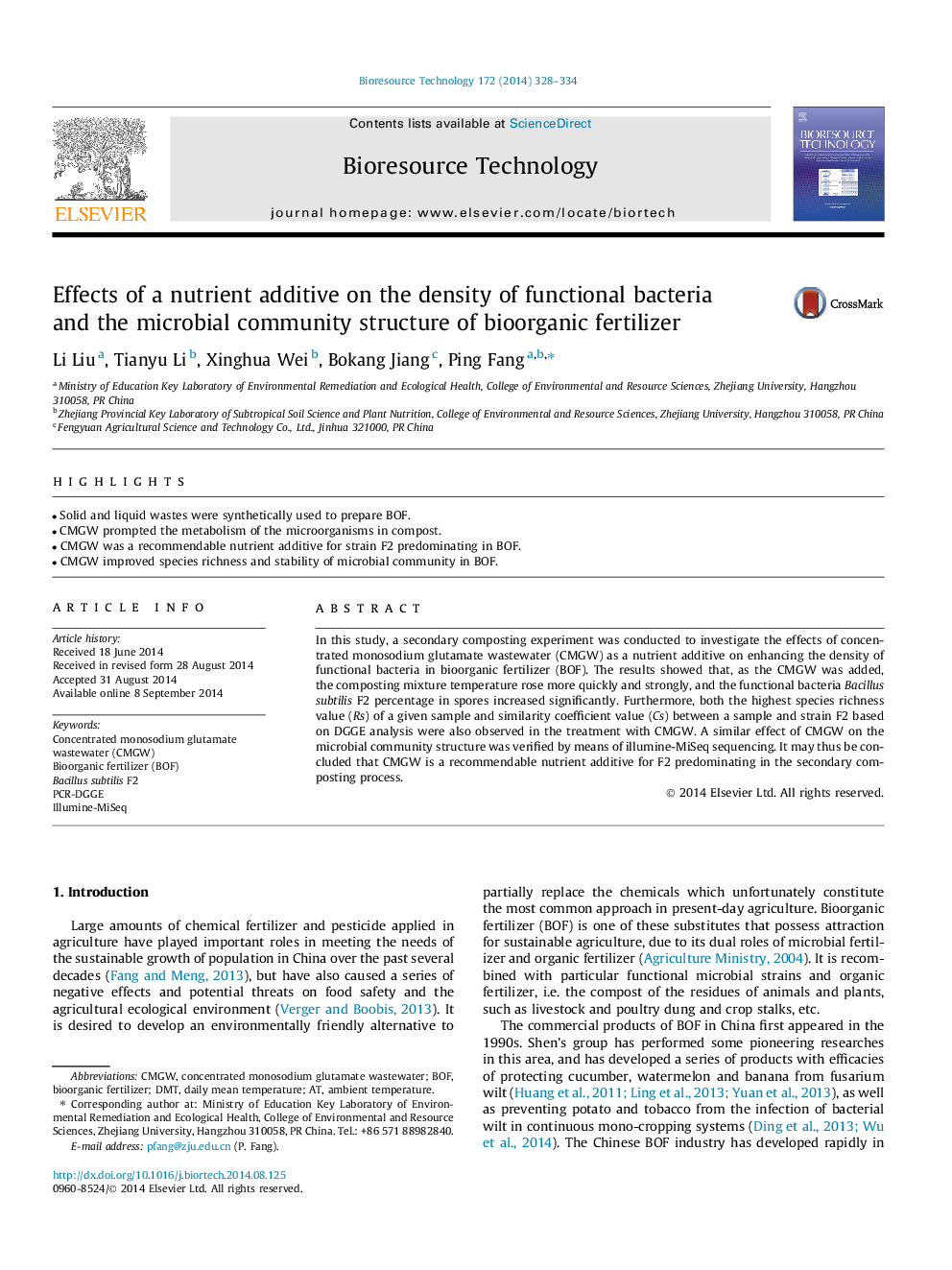| Article ID | Journal | Published Year | Pages | File Type |
|---|---|---|---|---|
| 680503 | Bioresource Technology | 2014 | 7 Pages |
•Solid and liquid wastes were synthetically used to prepare BOF.•CMGW prompted the metabolism of the microorganisms in compost.•CMGW was a recommendable nutrient additive for strain F2 predominating in BOF.•CMGW improved species richness and stability of microbial community in BOF.
In this study, a secondary composting experiment was conducted to investigate the effects of concentrated monosodium glutamate wastewater (CMGW) as a nutrient additive on enhancing the density of functional bacteria in bioorganic fertilizer (BOF). The results showed that, as the CMGW was added, the composting mixture temperature rose more quickly and strongly, and the functional bacteria Bacillus subtilis F2 percentage in spores increased significantly. Furthermore, both the highest species richness value (Rs) of a given sample and similarity coefficient value (Cs) between a sample and strain F2 based on DGGE analysis were also observed in the treatment with CMGW. A similar effect of CMGW on the microbial community structure was verified by means of illumine-MiSeq sequencing. It may thus be concluded that CMGW is a recommendable nutrient additive for F2 predominating in the secondary composting process.
